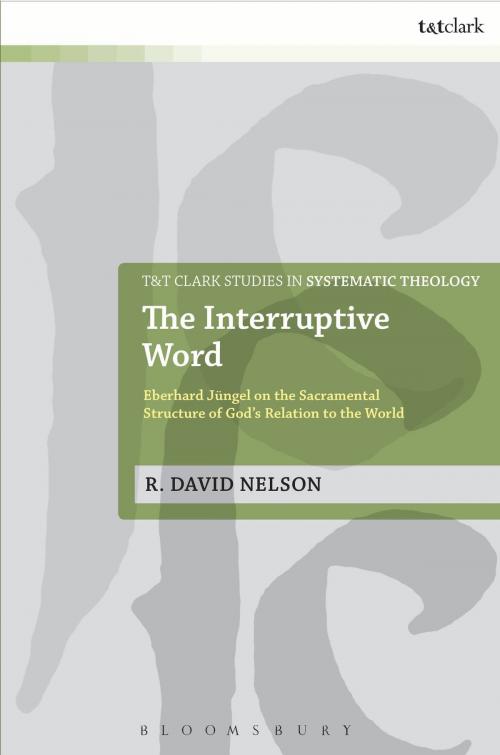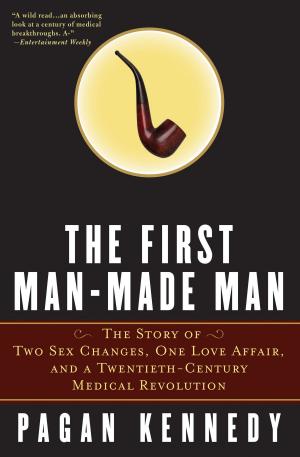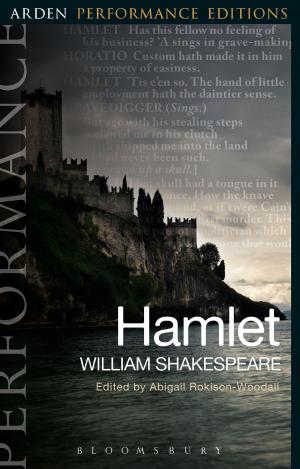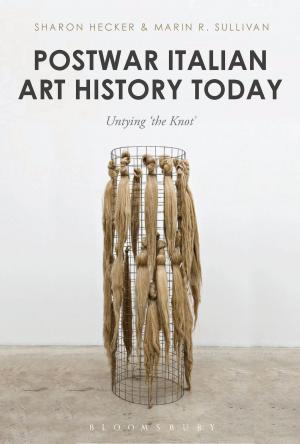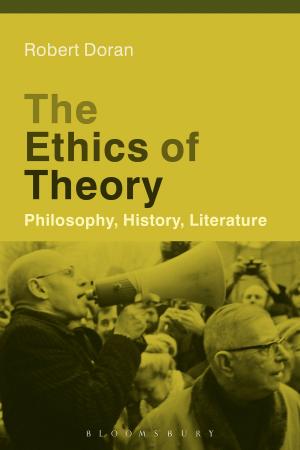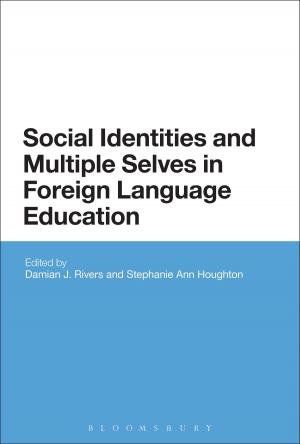The Interruptive Word
Eberhard Jüngel on the Sacramental Structure of God's Relation to the World
Nonfiction, Religion & Spirituality, Theology, Christianity| Author: | R. David Nelson | ISBN: | 9780567029959 |
| Publisher: | Bloomsbury Publishing | Publication: | July 18, 2013 |
| Imprint: | T&T Clark | Language: | English |
| Author: | R. David Nelson |
| ISBN: | 9780567029959 |
| Publisher: | Bloomsbury Publishing |
| Publication: | July 18, 2013 |
| Imprint: | T&T Clark |
| Language: | English |
While German Lutheran theologian Eberhard Jüngel (1934-) has made a number of significant contributions to contemporaneous discussions of sacramental theology, this topic has largely been ignored by interpreters of his thought. This study summarizes and evaluates, through a close reading of primary and secondary source materials, Jüngel's approach to the problem of sacrament. R. David Nelson considers Jüngel's claim that the word of God functions sacramentally as it addresses its hearer, and analyses his assertion that Jesus Christ is the unique and preeminent sacrament of God for the world. Progressing to an exploration of Jüngel's ecclesiology, Nelson reveals Jüngel's interesting approach to the question of the church's sacramentality. The volume concludes with an investigation into Jüngel's doctrines of baptism and the Lord's Supper.
The Interruptive Word demonstrates that Jüngel consistently appeals to the category of 'interruption' for describing God's sacramental relation to the world and its actualities, concluding that the hegemony of the category of 'interruption' in Jüngel's theology of sacrament raises important questions concerning its coherence and tenability.
While German Lutheran theologian Eberhard Jüngel (1934-) has made a number of significant contributions to contemporaneous discussions of sacramental theology, this topic has largely been ignored by interpreters of his thought. This study summarizes and evaluates, through a close reading of primary and secondary source materials, Jüngel's approach to the problem of sacrament. R. David Nelson considers Jüngel's claim that the word of God functions sacramentally as it addresses its hearer, and analyses his assertion that Jesus Christ is the unique and preeminent sacrament of God for the world. Progressing to an exploration of Jüngel's ecclesiology, Nelson reveals Jüngel's interesting approach to the question of the church's sacramentality. The volume concludes with an investigation into Jüngel's doctrines of baptism and the Lord's Supper.
The Interruptive Word demonstrates that Jüngel consistently appeals to the category of 'interruption' for describing God's sacramental relation to the world and its actualities, concluding that the hegemony of the category of 'interruption' in Jüngel's theology of sacrament raises important questions concerning its coherence and tenability.
